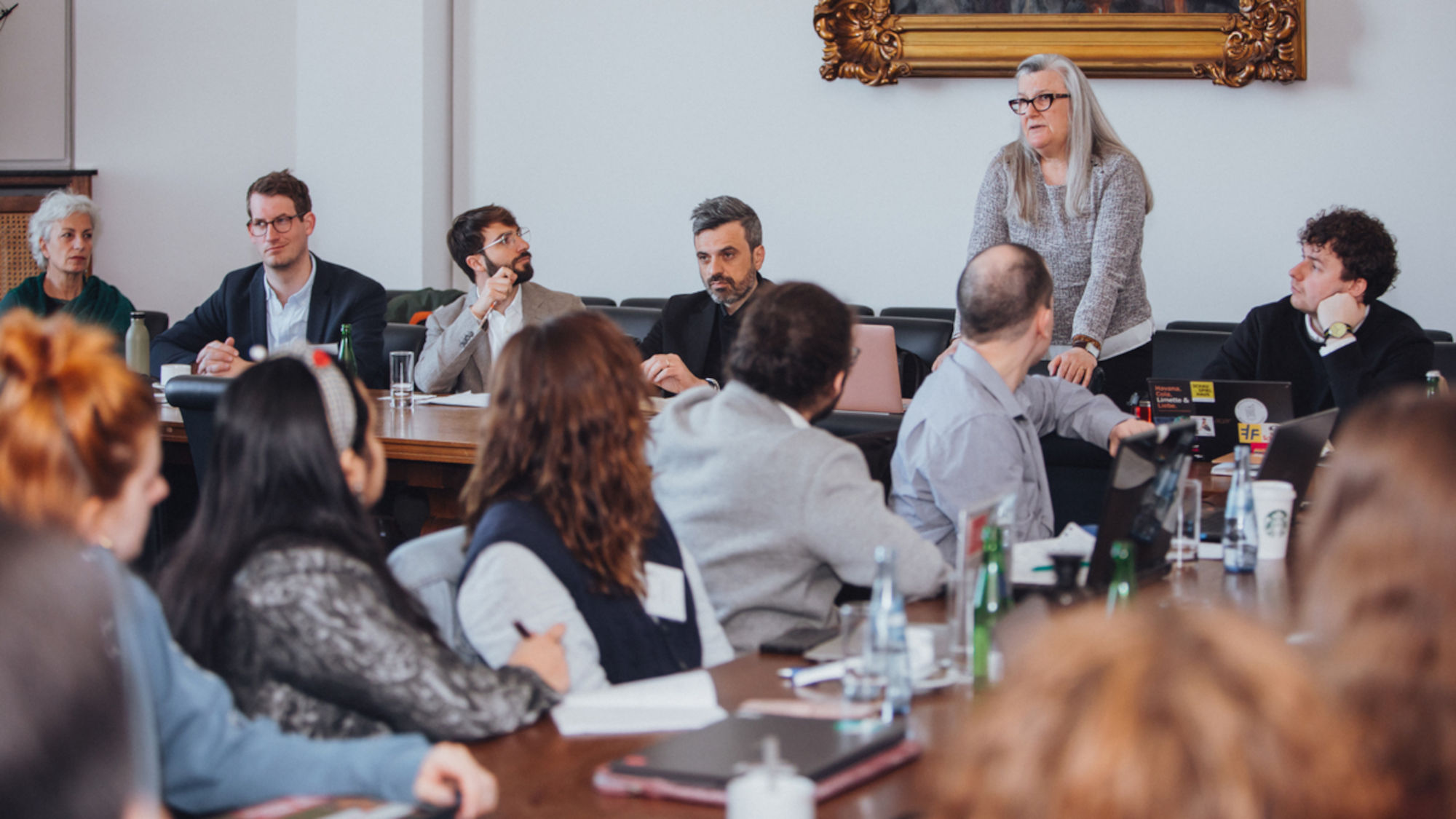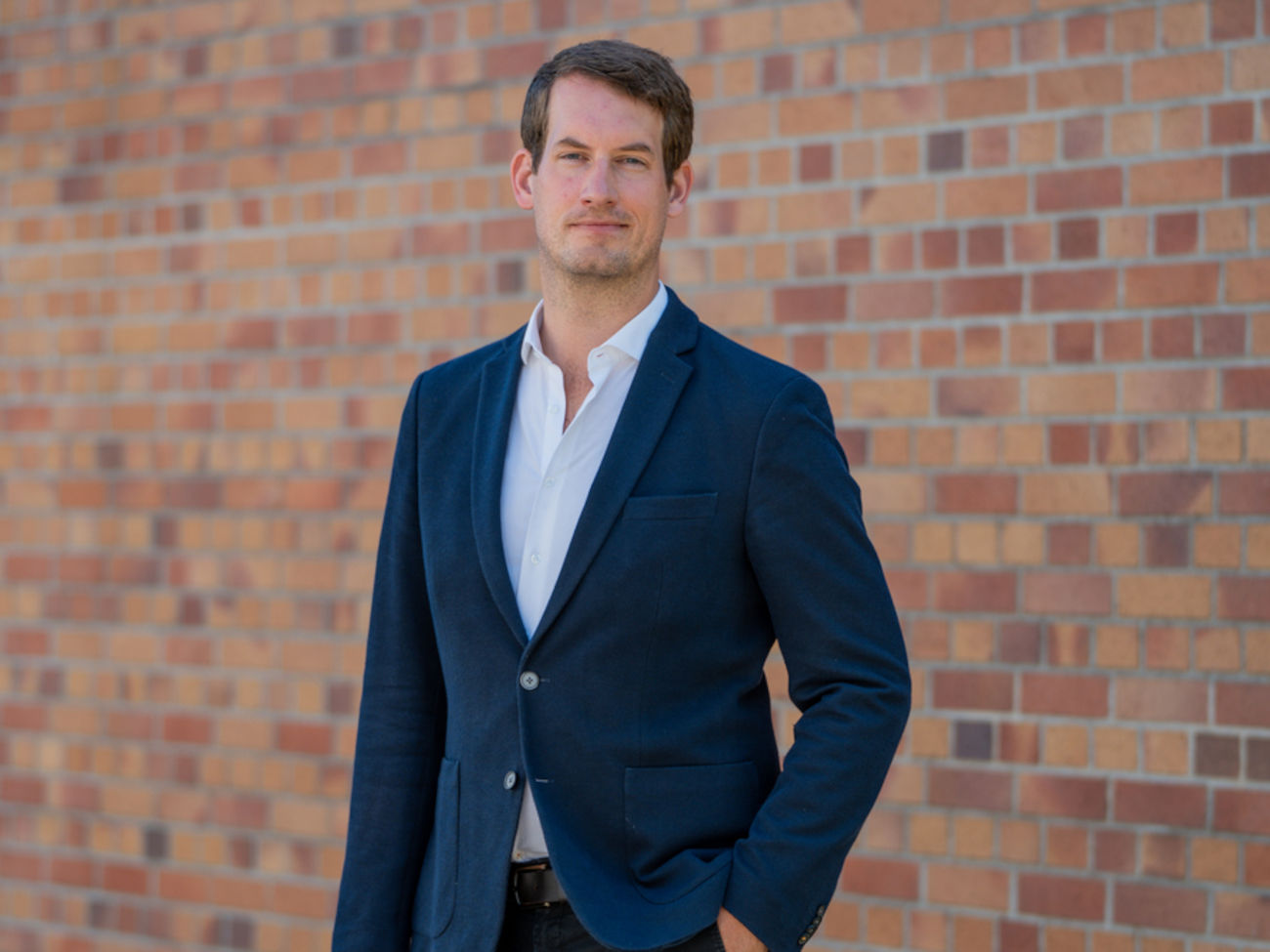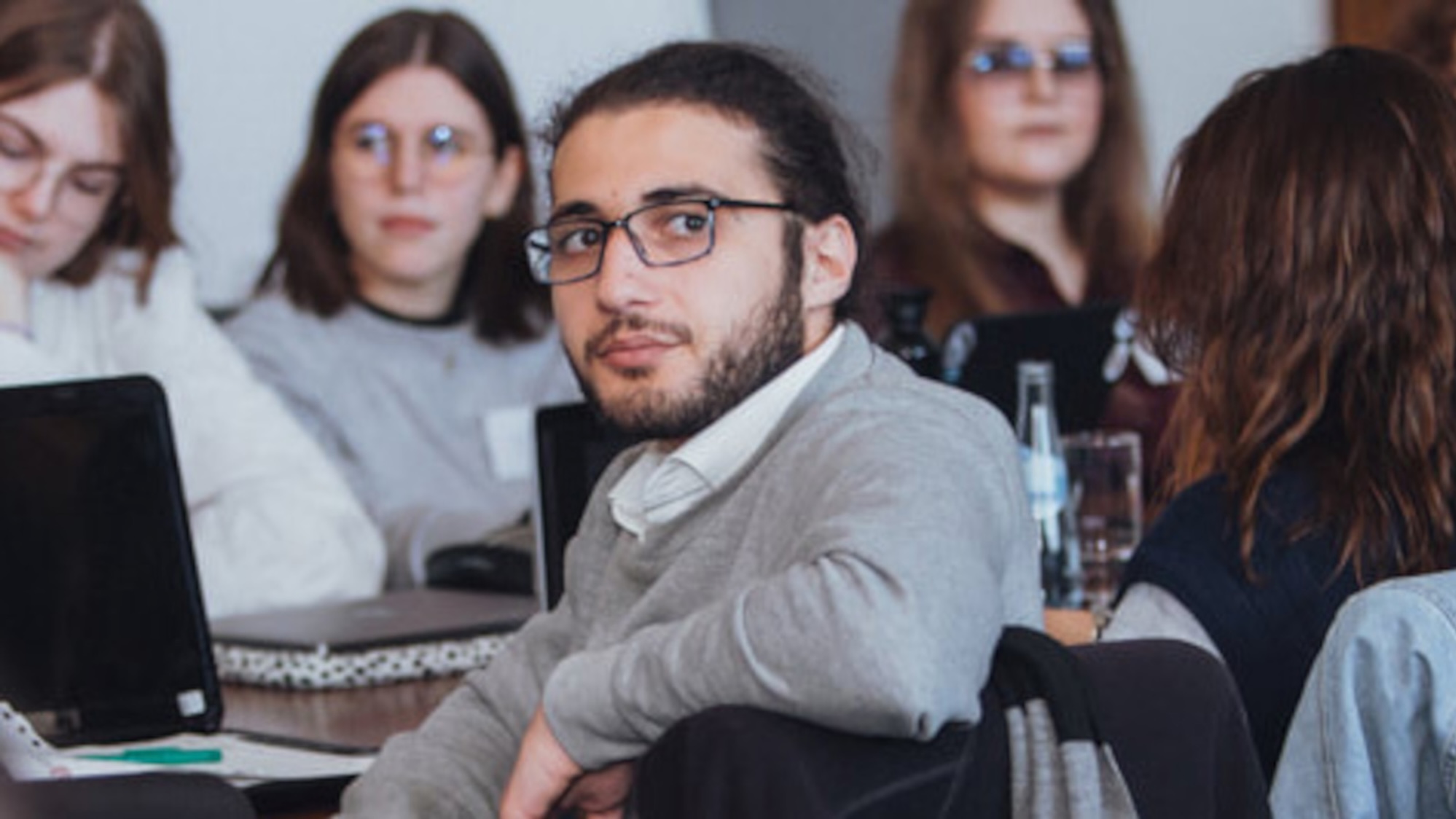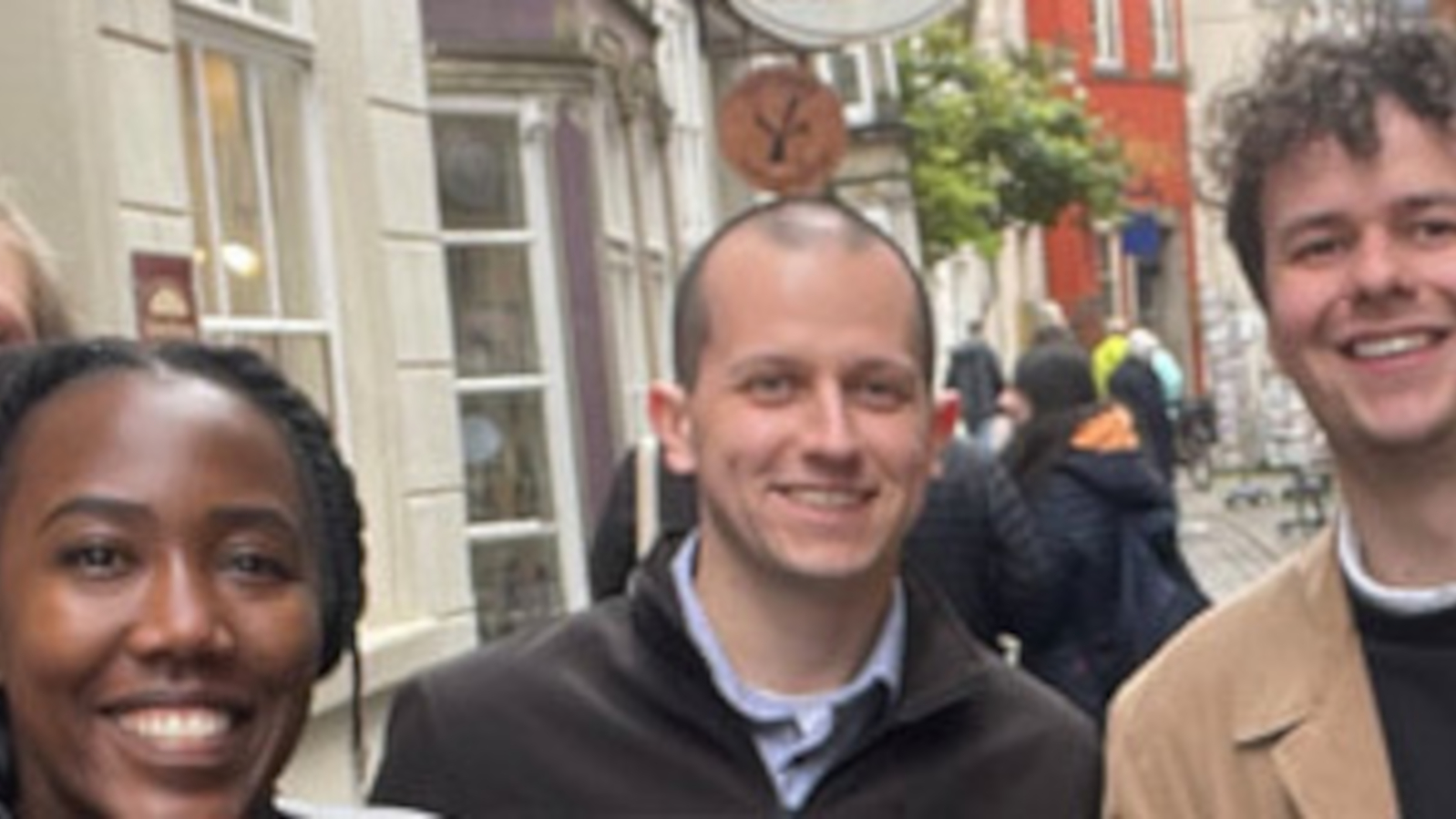
© Matej Meza / Universität Bremen
From an Online Seminar to a Collaborative European Event
Blended Intensive Programs (BIPs) offer teaching staff an innovative way to approach international collaborations and give students the chance to participate in intensive short-term mobility programs both nationally and internationally
InMulti-university Blended Intensive Programs (BIPs) are funded by Erasmus, and must be international, intensive, and combine both online as well as in-person learning. Dr. Dennis Redeker from the Centre for Media, Communication and Information Research (ZeMKI) coordinated the first BIP at the University of Bremen with seven European partners. The organizer and participating students shared their experiences in this program with up2date.
Mr. Redeker, what is a Blended Intensive Program (BIP) and what funding does Erasmus+ provide for these?
Blended Intensive Programs require that students and teaching staff from at least three eligible Erasmus+ universities collaborate in a “blended” format, meaning both virtually and on-site. The topics can be freely selected, and the program can be a summer or winter school, an excursion, a staff event, or any other intensive teaching event that brings students, doctoral researchers, or university employees together. Participation in a BIP is a good way to gather international experience for those who are unable or would prefer not to do a full semester abroad.
The coordinating university can apply for funding for organizing the BIP. Students and employees who travel abroad to participate in a BIP can receive a mobility grant and, if necessary, a travel allowance from the Erasmus+ budget of their home university. Those who wish to coordinate or participate in a BIP can contact the International Office.

© Annemarie Popp / Universität Bremen
Where did you get the idea for your BIP at the University of Bremen?
I have been coordinating the Digital Constitutional Network since 2019. The research network brings together more than 50 members from varying disciplines and universities across the world who all work on the topic of digital constitutionalism, which studies human rights and how to implement these in the digital age.
During the pandemic, our network began to develop online teaching formats. So when Erasmus funding of short-term mobility through BIP became possible, this gave us the opportunity to supplement our previously established online learning with an event that would allow students to meet in person. Interested students had to apply to this program with their home universities in advance, and spent a week in Bremen in April 2024. Before and after the visit, there were five additional online meetings. Part of the visit included social activities such as a tour of town hall and an event dinner. Seven other universities participated in the Bremen BIP: University of Padua, Dublin City University, University of Salerno, University of Helsinki, University of Groningen, University of Klagenfurt, and Tallinn University. In total, about 30 students and ten teachers took part in the program, as well as two speakers from the field of politics. YUFE students were also able to participate.
What issues did your BIP address?
Our BIP was about the Global Digital Compact (GDC), which is currently being negotiated at the UN level. This will provide the framework for defining common principles for digital technologies and their regulation. During the week, we watched the negotiations happening live and analyzed the proceedings and texts. In interdisciplinary groups with members of several universities, the students wrote policy briefs. These are commentaries about specific problems related to the GDC, such as facial recognition or gender equity. It will be interesting for students to see what the countries agreed upon when the GDC is passed and how this relates to digital constitutionalism in theory and practice. Another BIP program highlight was certainly the integration of the European Dialogue on Internet Governance (EuroDIG), which provided students the chance to follow a relevant European-level policy conference virtually. In the future, I would want to have students attend the conference in person as part of an Erasmus+ program to make learning even more practice-oriented.
Students describe what they experienced at the BIP at the University of Bremen here:

“I came to know about this BIP through my professor Claudia Padovani, who provided the opportunity to apply for the program to her students. Simultaneously, with Communication Governance course that we were taking under her, with a Policy Brief as a final evaluation method. The BIP content was in alignment with the course content and served to diversify my perspective and knowledge about topics like Digital Equity and Making the Digital Space more Humane.
What I like about the program is the diversity of the backgrounds and disciplines the participant students came from, which, thus, has enabled an interesting interchange of information and perspectives.
From a technical point of view, mastering the art of producing policy briefs, through getting to practice it for a third time in one semester, with strict deadlines was a fundamental step in the right direction of my professional and academic career. I look forward to elevating my skills to penetrate the field of policy studies on a higher level.”
© Matej Meza / Universität Bremen

“I participated in the BIP thanks to my student fellow who knew I would be interested in international experiences and workshops that would require interdisciplinary cooperation where I could enhance my legal thinking. He shared the info about the whole course with me since at first I did not really notice the email I got from our school.
The experience was great. It was really intense to conduct something really precise but flexible enough as to become a policy brief with people whom one doesn’t know from before at all and there are only few days of time. It was an educative experience, indeed. I particularly liked to follow the conversations and debates the supervisors and the guests shared all in all - I learn more when I hear more from a diversity of opinions and researches.
I can now know better how to produce text, which is by its nature very objective but precise at the same time due to its collective importance.”
© Elina Viima

“We received an email by the master´s coordinator about the program so I applied and filled the form as required. When the day was coming, we could not get to travel due to previously scheduled exams, nevertheless, we joined remotely.
My experience was enriching since it gave me the chance to do some research with my classmates about the global digital compact and the role of stakeholders. Nonetheless, we could not attend in person.
I especially enjoyed the idea of meeting many people from different universities, which makes the experience quite interesting in terms of knowing different cultures and perspectives. I can use the program in my studies by connecting the covered topics with my dissertation proposal.”
© Privat

“The program was offered to all law students at TLU, I applied, as Bremen is where my Grandmother was born in 1944. I had spent a day previously in the city but this allowed me to see my grandmother’s home city and explore it more thoroughly.
I enjoyed the program overall; it was informative and an interesting opportunity to collaborate with students from across the EU. I got the opportunity to meet new people some of whom I stay in contact with regularly. Especially as a Non-EEU student, (I am Canadian) exploring the EU and Germany is a bonus.
One of the areas of interest for pursuing my career is developing policies and regulations about the implementation of technologies like Facial Recognition (which we wrote about) and how to do so safely in the North American context. It is definitely an area of studies I wasn’t aware of prior to this event but will keep an eye on.”
© Privat
What tips would you give someone who is interested in organizing a BIP such as yours?
It is essential for planning to be able to rely on the partners with whom the BIP is organized and to have a solid basis of trust. It is also important that there are at least two other international collaborating partners located in other European countries so that this is eligible for Erasmus+ funding.
Since the participants from partner universities are not enrolled at the University of Bremen for the week they are here, they also do not have access to university IT and Stud.IP. We developed our own web tool for online learning, and we will gladly share this with future BIPs if desired.
Local funds are also available for the organizational and implementation costs of a BIP, and can be applied for with the International Office. These can be used for hiring student assistants or to cover costs of room rental, catering, or an event dinner. However, this financing is only possible if the BIP has at least 15 participants from European partner universities in the current year and at least ten in the following year. Participants from Bremen are not included in these numbers. Events with at least this many participants can receive 6,000 euros for 15 participants and 8,000 euros for 20 participants to offset organization expenses. A risk with this model is, of course, that students may cancel on short notice due to illness, internships, or final exams. Therefore, BIPs should be planned for more than the minimum number of participants. Participants from partner universities apply for short-term mobility funding at their home universities. I received excellent support from Barbara Hasenmüller and Mathias Bücken from the International Office with regard to all these formal questions, and everything worked out well financially in the end. Because this was the first BIP at the university, many things needed to be set up in the background.
Overall, I can say that it is no small feat to organize a BIP and that this usually must be done on top of all other obligations. Which is why it was important for me to be able to combine it with my usual teaching obligations. However, this was not just a nice way to cover teaching, it is also very rewarding, and it is nice to have visitors, to show them Bremen, and to present the University of Bremen. Above all, this new format provides a lot of flexibility. We are happy to have set the precedent with our BIP and are available to discuss details with others who would like to do so.
More Information
Blended Intensive Programmes (in German only)